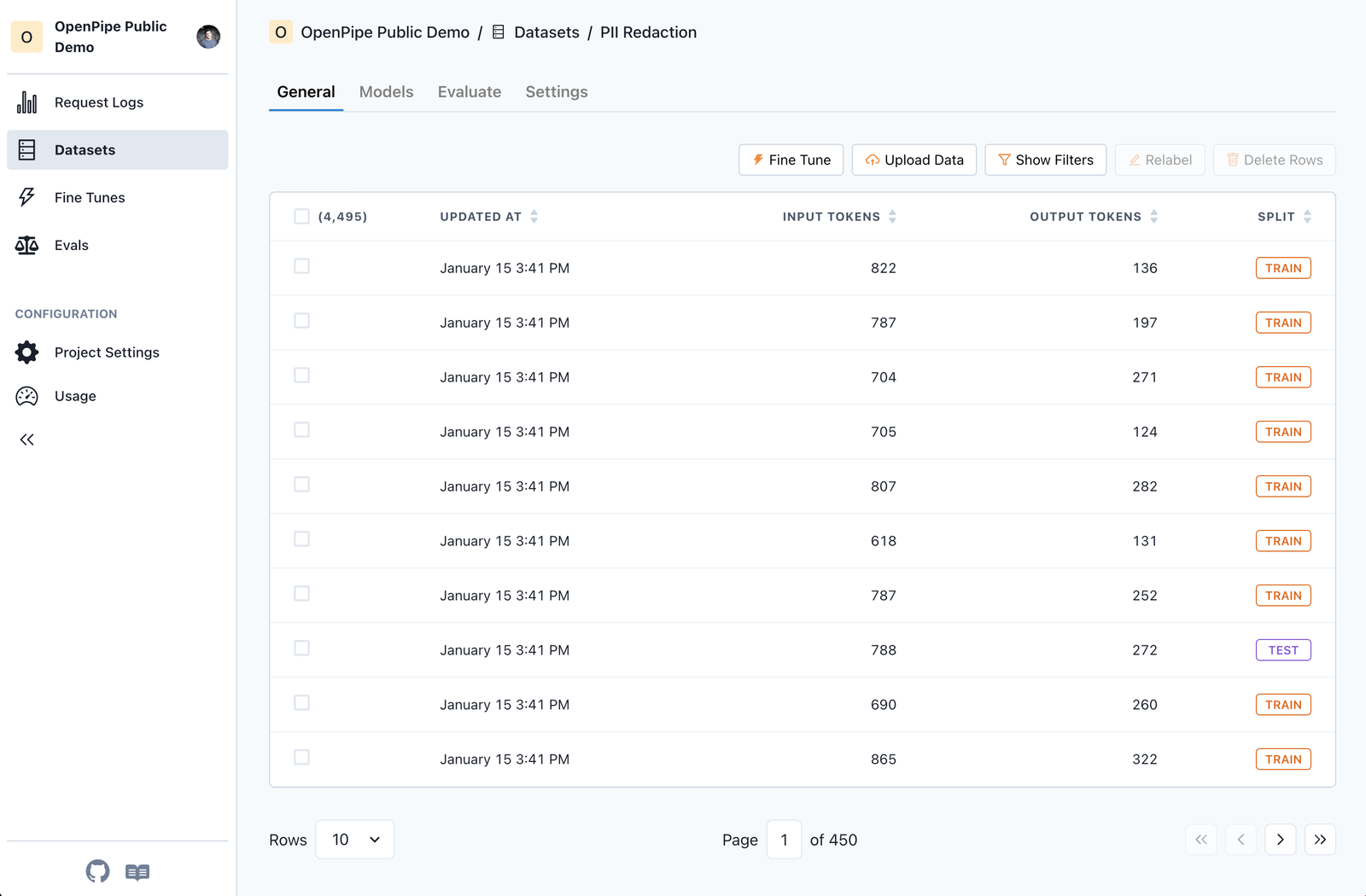OpenPipe is a fully-managed fine-tuning platform that aims to help developers everywhere first, replace their organizations' GPT-4 prompts with private open-source fine-tuned models, and then, enable them to build a custom data flywheel. The company reports it has already assisted its customers in saving over $7 million, lowering latency, and improving the quality of their AI workloads by replacing GPT-4 with fine-tuned open-source models in the OpenPipe platform. The successful closing of its seed round will surely continue to fuel OpenPipe's mission, thanks to the backing of Costanoa Ventures, who led the funding round, Y Combinator, Logan Kilpatrick (former head of DevRel at OpenAI), Alex Graveley (creator of Github Copilot), Tom Preston-Werner (founder of Github), and other participating investors.
It is now fairly well known that smaller open-source fine-tuned models bring many advantages: they are safer to use, especially when protecting sensitive data, cost-effective, and when fine-tuned on the right data, they can be as performant as many proprietary models tuned on that same dataset, but with a smaller footprint. OpenPipe claims that for projects or organizations that perform at least 1000 daily OpenAI prompt calls, switching to a fine-tuned model on its platform is a true Pareto win, since it brings speed, cost-effectiveness, and quality at practically zero cost. Moreover, once the model is out in production, OpenPipe automates the corresponding data flywheel creation and management, meaning the model's performance will surely improve over time, thanks to a list of platform components that can handle data collection, refinement, fine-tuning, evaluations, monitoring, and continuous retraining.
Interestingly, OpenPipe seems to have caught on to a discussion that has been recently gaining traction: the issue of just how sustainable ChatGPT wrappers are. The most impactful concern there has to do with startups whose whole business is based on offering wrappers as products, but OpenPipe's main selling point gives us a glance at a different aspect that is also starting to show up more often: switching over from wrappers to a fully-featured data management platform is beneficial for businesses too since it simplifies and optimizes the data-leveraging process while maximizing the benefits by shortening the time it takes to incorporate real-life data into training and production, or even by simply enabling organizations to leverage data that would otherwise remain unnoticed.







Comments